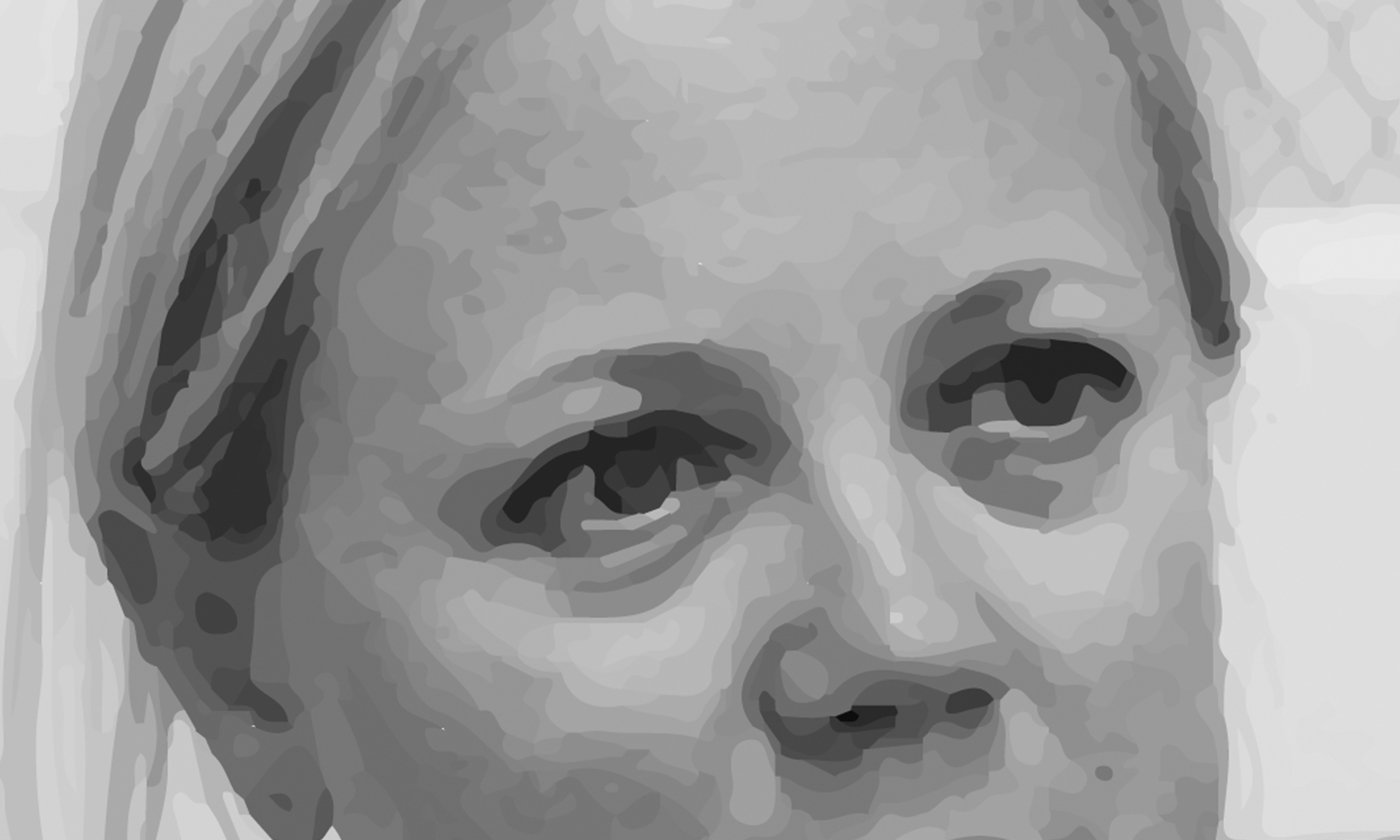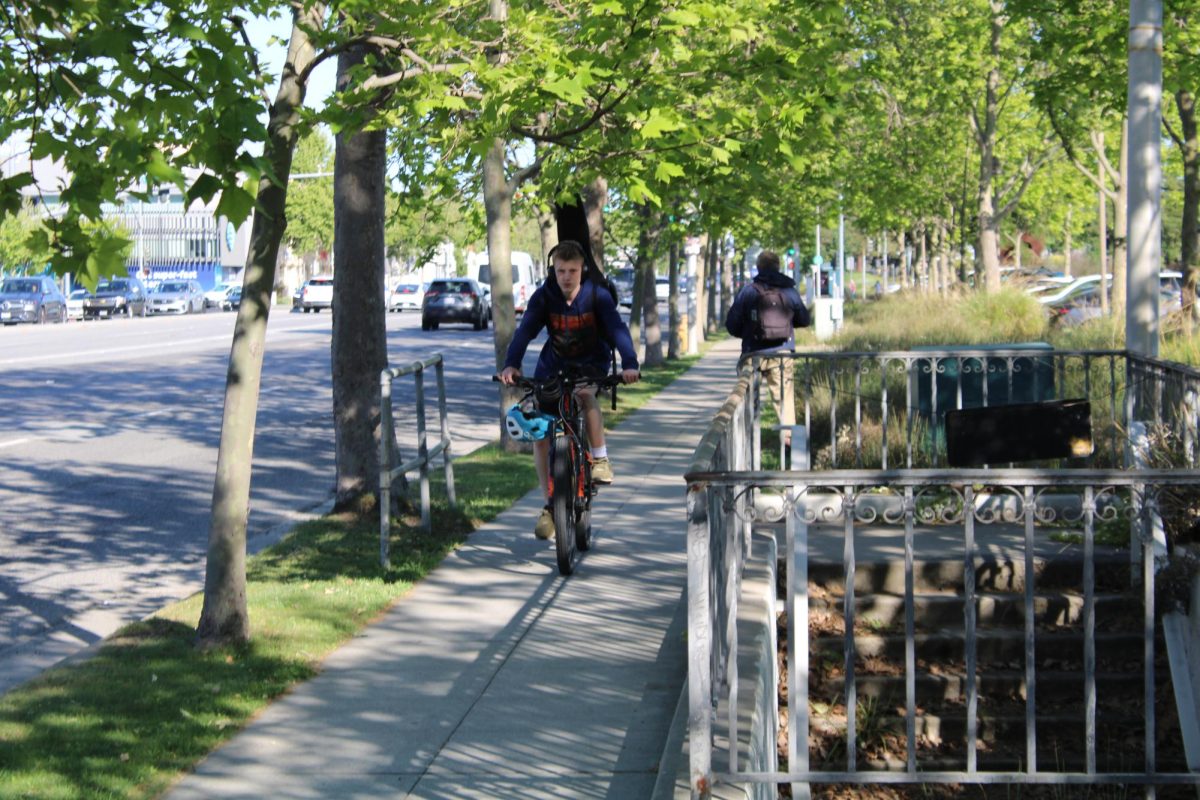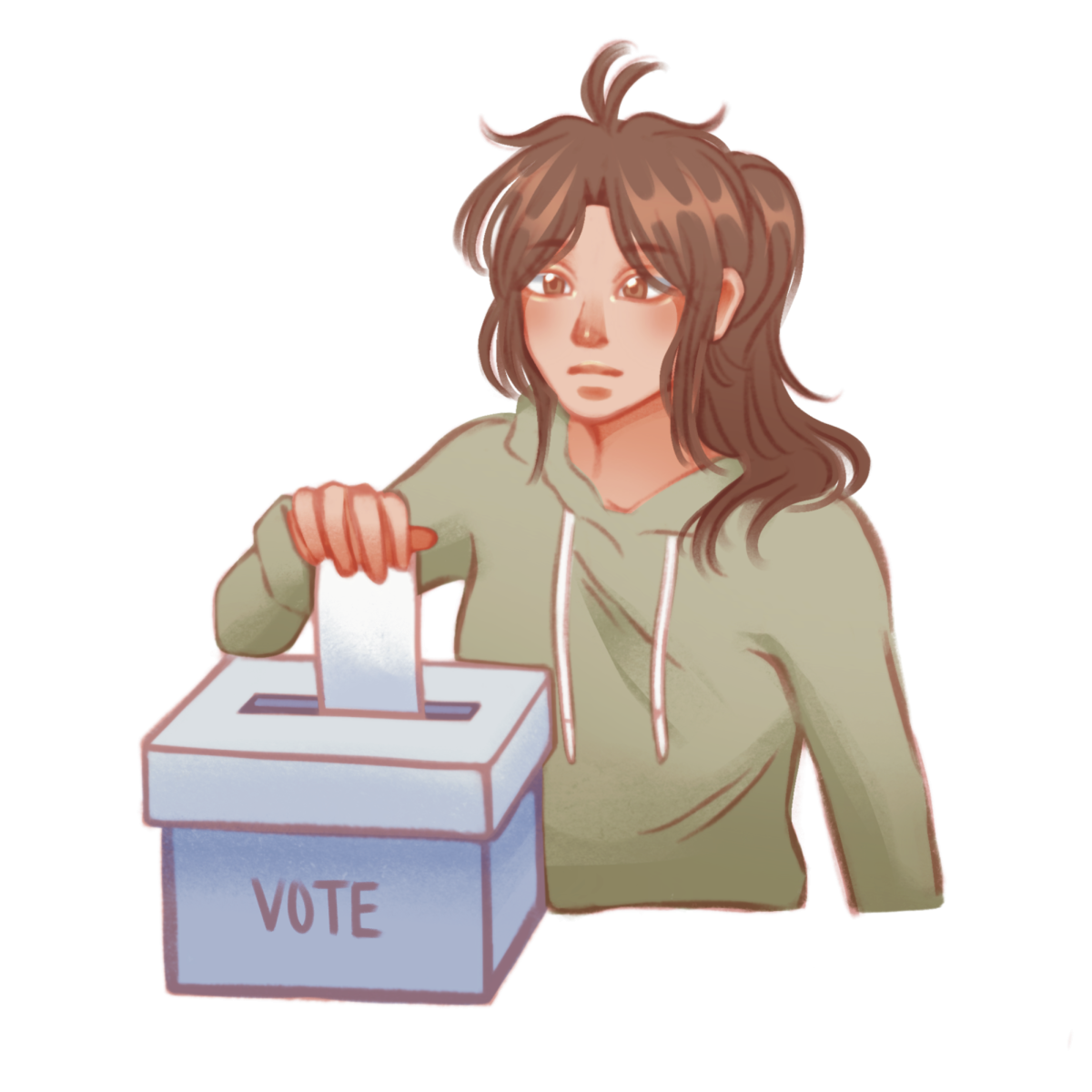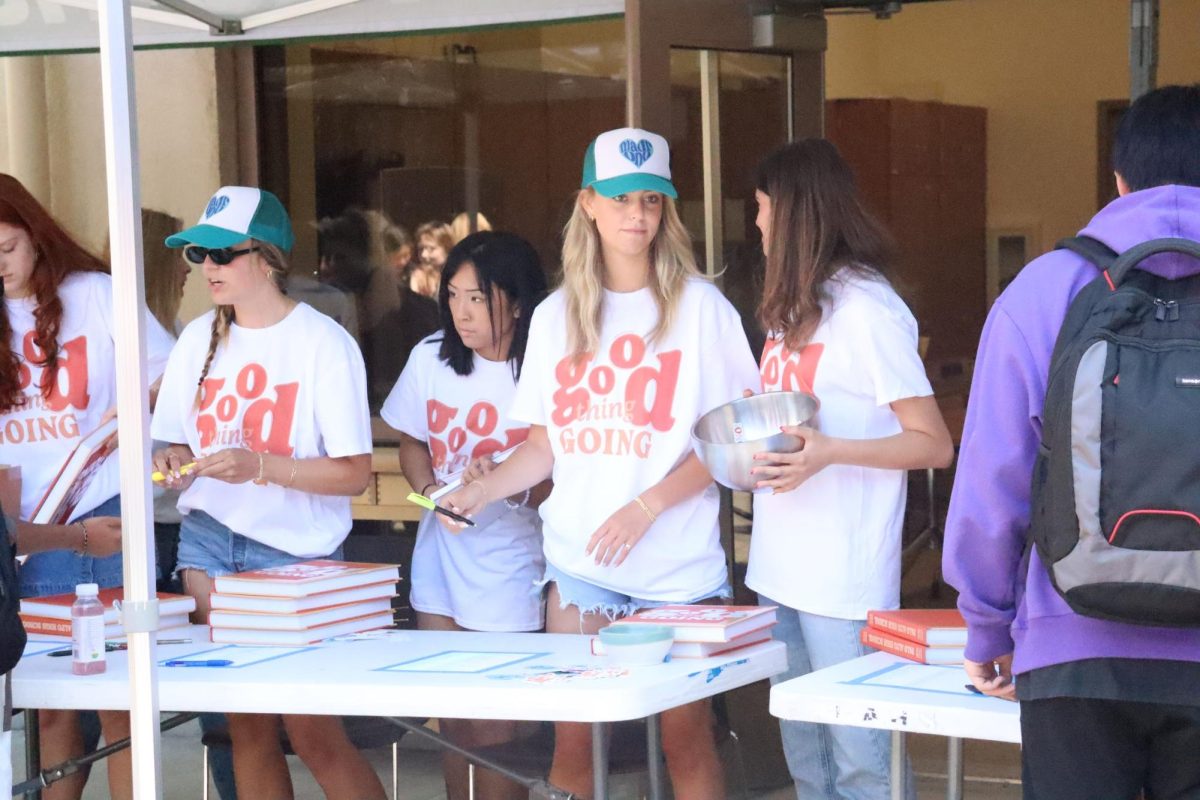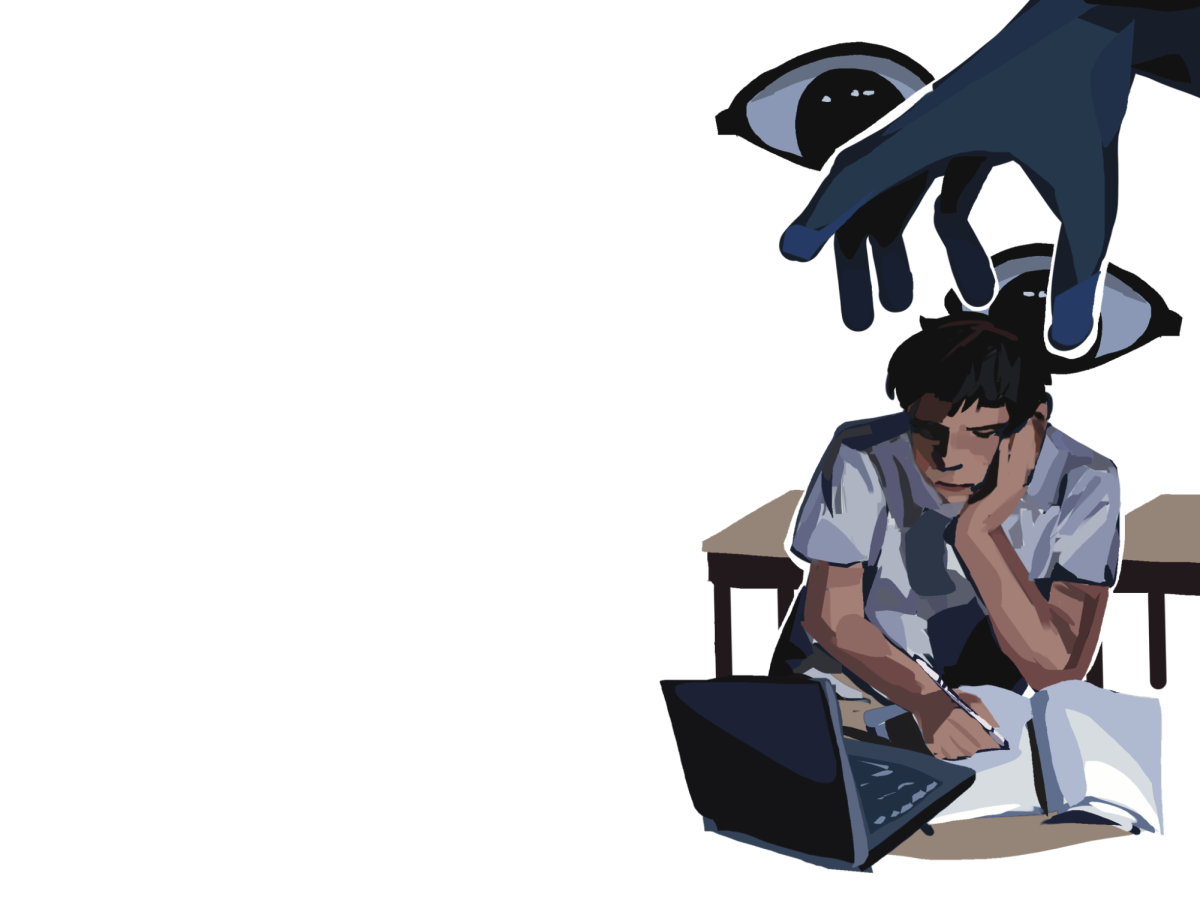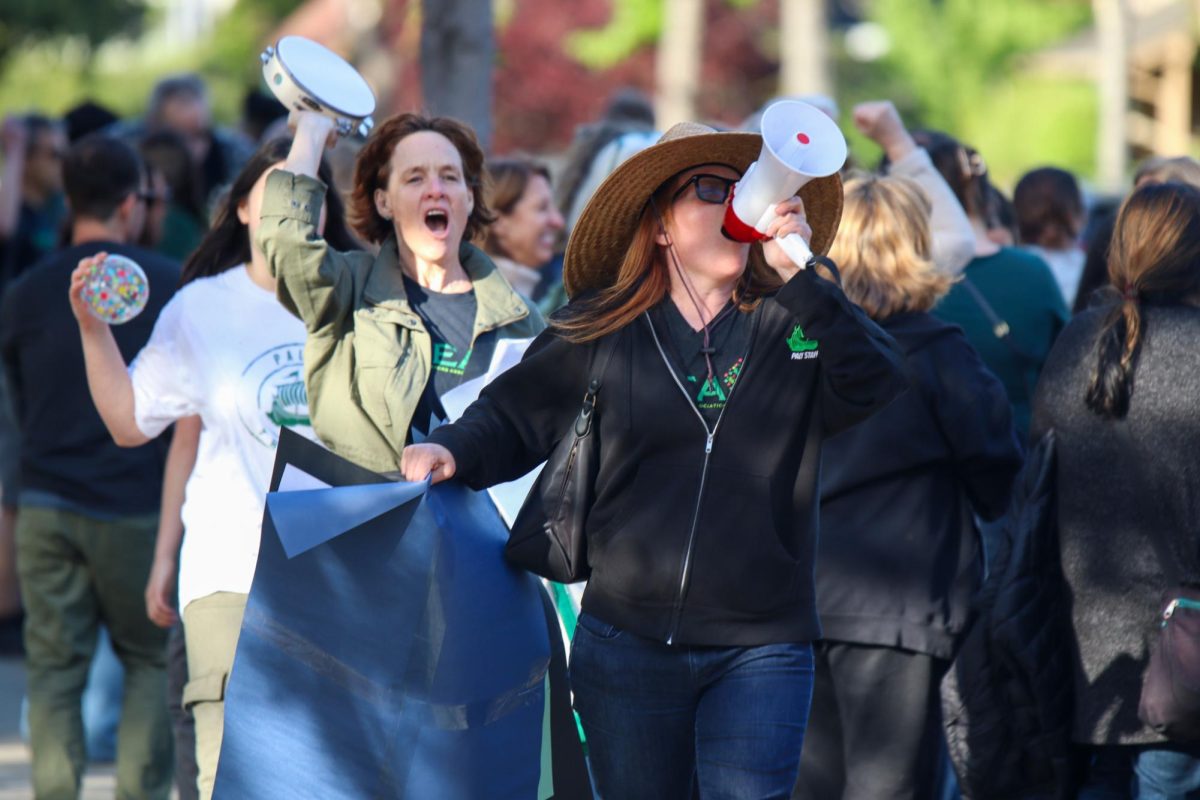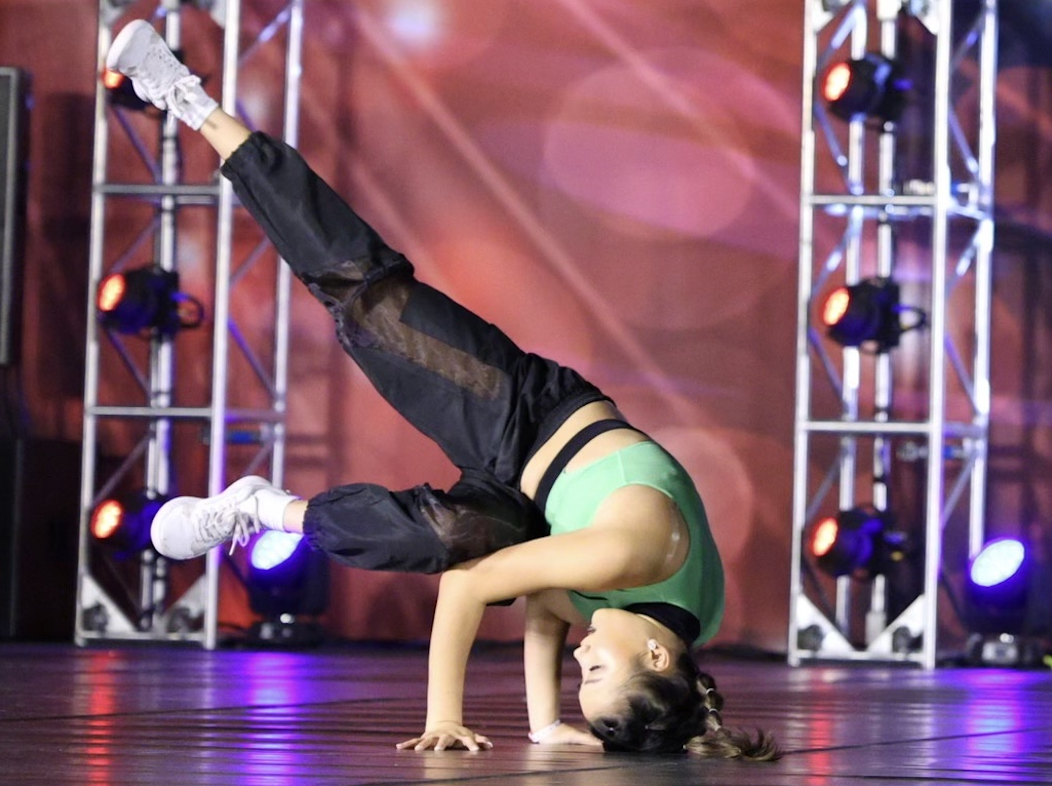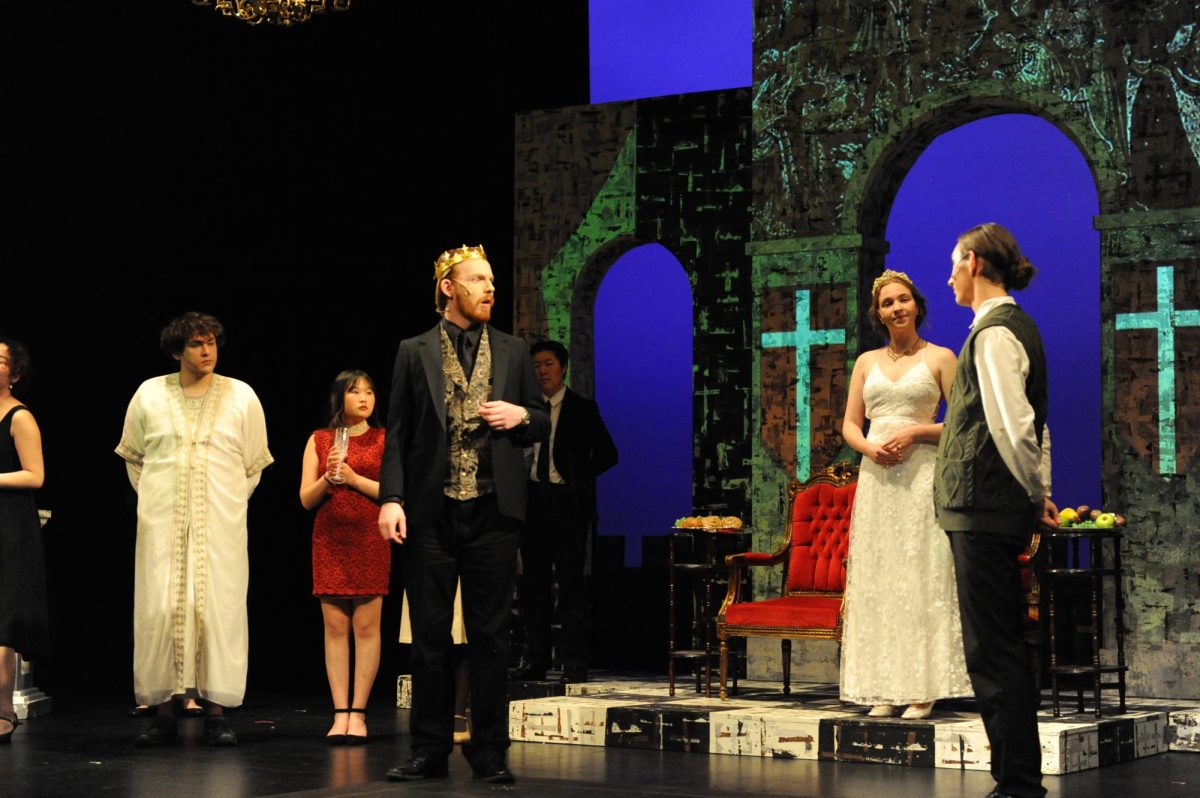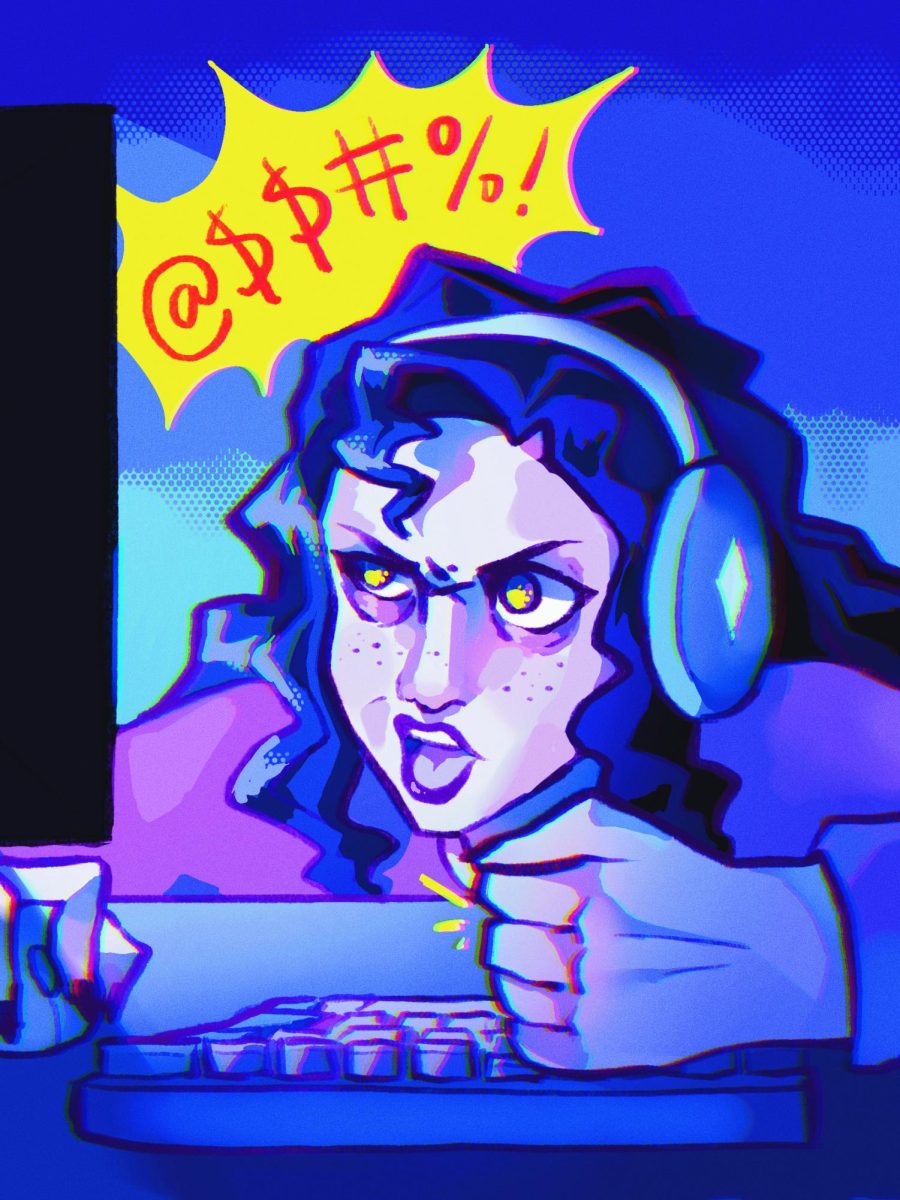Editor’s note: Principal Kim Diorio announced in early March that she would leave Paly at the end of the school year in the wake of criticism from the District office. Diorio sat down twice with Campanile reporters — on March 28 and May 12 — to tell her story. This is a portion of the full interviews.
Former principal discloses pressures that provoked her departure
[divider]What led to your resignation?[/divider]
“I really wanted to do at least one more year. Try to stay at least six to seven years.
I told the staff I wanted to stay seven to 10 years. It’s only been five. It wasn’t until after Dr. McGee left that I felt like this was the beginning of the end for me. It’s been hard.
There are a lot of reasons that led to the decision. It’s time for me to move on and do something else where I can continue to grow and feel supported and know that my work is valued. I think it’s clear that that’s probably what’s best for the school.
I’m sad I didn’t see this coming. It is bittersweet because I do love the staff and the students at Paly and I would like to stay longer to finish some of the things we started.
[divider]How do you feel about Palo Alto Online?[/divider]
I think it’s a shame when people rush to judgement and they don’t know all the facts, but I think that’s typical of what’s happening in the U.S. media these days. I was disappointed, but not surprised, of what they have to say.
But they don’t know the whole story. They’ll never know the whole story because we cannot disclose all the details. I know I did nothing wrong.
Do we make mistakes? Yeah, but not purposely or not because we didn’t know any better.
We were not trained to do what they want us to do, and we were following the advice of everyone who was helping us in the district office. And that’s what schools do in these situations; it’s very common in any district.
I think Palo Alto Online needs to accept some responsibility for the negativity that they created in the community. But I don’t think they ever will because that doesn’t sell papers.
They want people to look at them and read them, so they’re looking for what they think is a good story, but what they know is not the truth.
[divider]What was your experience with board meetings and the community?[/divider]
I find that in our community of Palo Alto the only way to get the Board’s attention is to attend the meetings and speak at open forums.
You can send emails, write letters and ask them to get coffee and I know they are very happy to meet people, but until people actually go to meetings and talk into the microphone, it doesn’t have the same impact.
Look at the whole Jordan-Terman renaming controversy – it’s because people showed up to those board meeting with their opinions. It’s really the matter of having the courage to speak out. And unfortunately, most of the people in our community are afraid to speak out because those board meetings don’t always feel like a safe place to be. It’s tricky.
Based on my experience, oftentimes when people speak, the members of the audience will clap or snap fingers or sometimes I even see them hiss. I saw them hiss at Dr. McGee when they didn’t like something he said.
If the trustees aren’t going to trade some norms around behavior and protocol, it can feel like a three-ring circus. I’ve had an assistant principal of mine not feel safe at board meetings, and I haven’t felt safe at board meetings. I had my tires popped in a board meeting. It’s hard to speak up in a community when it feels like there could be retaliation if you do.
Kim Diorio
[divider]What was your reaction when you received the disciplinary letter?[/divider]
I was very surprised when I received the letter. I had a conversation with Dr. McGee and the now superintendent [Karen] Hendricks; she was doing Human Resources at that time. Dr. McGee said there would be no disciplinary action taken against me.
He said, ‘You did the right thing. You did a good job. The issue really was on the District’s end,’ meaning the Title IX coordination. And that happened in August in my office.
So when I received the letter, it felt like a broken promise. I was like, wait, wait a minute. I think it’s hard because there’s a lot of trust broken when that happens.
Kim Diorio
[divider]What emotions did you have when receiving your disciplinary letter?[/divider]
I had a bad virus and cough and fever in December. I kept fighting something and I couldn’t get better. It’s just bad timing. I couldn’t even process what was happening because I was so miserable physically. I would come back to work, and three days later I would go home. It was frustrating, and I was disappointed and thought this isn’t right. It just didn’t feel right to get the letter of reprimand. And so I responded, and my question to the District when Anne Brown gave it to me was, ‘Anne, was I supposed to be insubordinate to the district office and the onsite council?’ Because in reality there is a chain of command, and when your boss tells you to do something you do it.
How was I to know that being insubordinate was what I was supposed to do? I mean, then I could’ve been disciplined for that. So I asked her, ‘Help me understand what the right thing to do is,’ and she said ‘I don’t have an answer for you.’
Kim Diorio
[divider]What do you think of community members who are angry?[/divider]
The counselor in me feels sorry for them. I feel like they must be struggling with their own issues, and they’re taking it out on me. There is something going on in their lives that’s painful, and they are transferring all of that negative emotion onto me and the school district.
I feel like most healthy adults and adolescents in our community don’t have the time to be so personally invested in attacking and making things difficult and challenging to somebody in my position. Most people have other things that are filling their lives, good stuff. I feel sorry for these people, because they clearly need help. My dad always told me, ‘You can’t rationalize with irrational people.’ I have to be careful what I say because I can’t say anything without being accused of retaliation. That’s what they will accuse me of if I try to defend myself. So I’m in this position where I have to be silenced – for now. I won’t always be silenced – I’m still an employee though.
[divider]What are your views on Kathy Jordan’s candidacy for school board?[/divider]
Well, I would not support that community member. When I heard that she made that decision, I was very glad I’d submitted my resignation and will be moving on from Palo Alto Unified.
I really worry for the future of our school district. I think she’s burned a lot of bridges, and in her effort to advocate for students, I think she’s done some significant damage and she’s lost a lot of credibility.
Certainly at the site level, I know the teaching staff would be very disappointed to see her on the board, at least at Paly. I can’t speak for all teachers, but from what I heard, there definitely seems to be consensus that people feel it would not be good for our community.
She’s not somebody who’s going to bring people together.
She’s very divisive. She uses the word retaliation a lot, and because she speaks publicly about me, it has kind of boxed me in a corner in a way where I can’t really respond to that lest she can say I’ve retaliated against her. So I’m trying to be really careful what I say.”
Diorio reflects on the support of staff and students amid turmoil
[divider]How was support from the Palo Alto community?[/divider]
“The staff from day one have been really supportive, especially the ones that have been on campus for so long, that have seen the steady rotation of principals. I think they recognize it’s a really hard job, and so they want someone who’s going to stay long term and really invest in them.
Since my first day, they would write me notes, write me cards and drop little gifts off in my office. That never wavered, even through some of the darkest days and the biggest challenges.
When I think back to when we were in the middle of the suicide cluster, it was really hard for everybody.
But the staff was very supportive in helping me. They recognize that everyone is human and that everyone makes mistakes.
I’m sure they don’t always agree with some of the decisions I had to make, but I dont think they’ve been personal. I think they always saw it as part of my job. There’s mutual respect.
[divider]What was your relationship with the Superintendent like?[/divider]
I loved working for Dr. McGee and before him Dr. Skelly. McGee was a very strong superintendent. I felt like he was very supportive, and he had my back. A strong principal needs the support of a strong superintendent and vice versa. There has to be a really good working relationship between them. When he left, I was really sad, and I’m still sad. I knew that I lost support at that point.
With Dr. McGee, we were in constant communication, a lot of keeping him informed of what’s happening so he was never caught off guard. We would always talk about goals and big picture visions, how we would get there, how we could work more collaboratively with the rest of the school district.
He always heard about things first from me, and I always knew that he would support me if I wasn’t sure about what to do. In a sense that I needed a mentor, a support system, knowing that if you’re gonna make a hard decision, that he would stand with me on that.
There’s nothing worse than me making a decision, and then have someone going to him and him reversing my decision.
[divider]Any specific times of support?[/divider]
When a science teacher passed away, Mr. Scott, we had to tell the teachers. This was a gentleman I cared a lot about, and I worked with him for years. It’s really hard and sad, but as a leader, you have to be that person communicating it. When I had those conversations or had to talk about something, like weighted grades, McGee stood by my side, although he didn’t have to. Maybe that’s why we’re all where we’re at right now.
I really appreciated that. I appreciate that he saw what I valued, and I saw that he supported me.
The first thing he said to me when he was hired was, ‘So what can I do to help you at Paly?’ and I said, ‘I just need you to have my back’. He’s like, ‘You got it’. And he did.
[divider]Do you believe the community cannot progress after events in recent years?[/divider]
There’s community members, only a few, who I think have got their own issues. I don’t know why they can’t let the [sexual assault case last year] go.
Max McGee has resigned, I’ve resigned, the Title IX coordinator is gone; that should be enough. Put this behind us, and let’s move forward. They’ve created this identity of being the rabble rouser and it’s not good. The majority of the community, 99 percent, want to move forward.
If a parent was upset with me, they would reach out and schedule an appointment and talk. That’s how most people resolve conflicts. But there’s none of that, it’s just, ‘Let’s go to the press.’
That’s not how you resolve conflicts, so that’s what makes me think I’m not dealing with a rational person. A rational person would say, ‘I’ve got an issue. I don’t like that you did this.’
[divider]What hopes do you have for the new principal at Paly?[/divider]
I think it’s just continuing the work we’ve already been doing. I think it’s about giving the teachers a lot of the resources and support and autonomy to continue the good work that they are doing and making sure that we’re following that plan that we have for the next three years.
Somebody who will spend the first year building relationships because, in our school in particular, it’s really about relationships and getting to know people and getting to know the school and culture and how things work.
I think one of the good things is that I’ve created a well-running organization – we’ve got a lot of leadership already there and still in place.
Being a real champion, and to understand how the media arts programs work, that’s something I’ve seen other principals get burned by if they don’t figure that out pretty quick and how to work with the student press. Because I think that there can be a really good reciprocal relationship there.
And also the idea of student voice and really listening to students and making sure you’re making decisions based on what the students are telling you. The bell schedule committee is a good example of that.
The students had as equal voice in that whole process as a teacher or a staff member or as me, a principal. They could just lay it out and be respectful. We have a lot of really good systems and supports in place.
We have hired really good people. I’d like to think that the school will be fine without me, and that’s a good feeling, as a leader, to be able to feel that and walk away.
I think the school deserves a principal that has the full support of the superintendent and the Board of Education. I think the school deserves a principal that can move the school forward in a way that would not spend a lot of taxpayer dollars in investigations and public record requests.
Those type of items come up when people are unhappy with leadership, so I would think there’s a lot of money that could be spent in teaching, in learning, where it should be spent.”
Palo Alto Online, McGee and community respond to Diorio
[divider]Palo Alto Online[/divider]
During times of district-wide controversy, the Palo Alto community found its own means of voicing opinions and concerns regarding the staff at Palo Alto Unified School District (PAUSD).
The Palo Alto Online “Town Square,” an online forum where users can submit anonymous comments, became a soapbox for community members to express their opinions on former Superintendent Max McGee and Principal Kim Diorio.
“The District spent a lot of money to have an investigator analyze [the Title IX violations], and the Office for Civil Rights conducted a long investigation,” said Bill Johnson, publisher of the Palo Alto Weekly. “They all came to the same conclusion that Paly administration did not handle numerous situations as they should have under the law. Obviously that is going to rile some people up, and it is going to result in some people feeling that certain people should lose their jobs.”
The Palo Alto Weekly has written multiple editorials criticizing the District and McGee’s handling of the sexual assault cases; most recently, however, Online published an editorial titled “Blame to go around,” moving past McGee and criticizing Diorio’s “disappointing” response to her letter of reprimand. The story says Diorio’s response “shifts blame to [Associate Superintendent Holly] Wade, McGee, a district lawyer and others.
[divider]Max McGee[/divider]
In late September 2017, Max McGee announced his resignation as the District superintendent in a public Board meeting.
McGee’s resignation came just days after the independent investigation done by the firm Cozen O’Connor found the District had forgone various steps in its Title IX investigations over the alleged sexual assault of a Paly freshman in 2016.
McGee did not address the Title IX investigations in his farewell statement to the Board and did not imply that his departure was due to any sentiments of the Board or the community. In a recent email to The Campanile, McGee upheld this notion.
“I can’t speak for Ms. Diorio,” McGee said in the email. “But as for me, I did not feel any community pressure to resign. What has always mattered most to me is to find solutions to problems that first and foremost are in the best interest of students and second demonstrate reasonable efforts to reach consensus support.”
When asked whether he promised Diorio that she would not face disiplinary consequences in response to the Title IX misconduct as detailed in the Cozen report, he referred to the Cozen report and said that he no longer had an accurate memory of any such conversation.
[divider]Kathy Jordan[/divider]
Kathy Jordan, a community member running for school board in the upcoming PAUSD board elections, frequently spoke publicly against Diorio, particularly after the Cozen report criticized Diorio’s conduct last year.
According to Jordan, there is currently an outstanding report on a November 2015 sexual assault at Paly. Jordan would like the report released “so that the community and the students can know fully about Ms. Diorio’s conduct…”
Jordan maintains that her role as a community member is to speak up on behalf of students.
“My interest in these incidents at PAHS all along has been about student safety and following the law. I care about our students; these are our children.”
[divider]Board Members[/divider]
All Board members contacted said they did not want to comment on Diorio’s resignation.
Diorio’s legacy remains at Paly
Diorio describes what she views as some of her accomplishments as Paly’s principal, and her hopes for the school’s future.
“We’re in the midst of doing a lot of good work in the classrooms around course alignment and around developing new innovative pathways for students. I’m sad that I won’t be around when we talk more about social-emotional learning. I’m so excited that the bell schedule committee will be part of my legacy. I just wish I’d be there to see it off with the implementation of it. The facilities, working with the library, opening up the renovated library, moving Guidance down to that area, that’s always been a long dream of mine. Finally seeing it happen next year will be exciting. Historians and a group of alumni are working on the centennial celebration of our school. I’d like to see those things out.
Even changing some of our grading practices is something that I would really like to see –– a move away from this culture of points and focus on grades to a point where it is more about learning. Hopefully all these things will continue, but I would’ve liked to be a part of that.
Kim Diorio
Schools have been able to make the switch away from that more traditional learning model. So I think for Advanced Authentic Research (AAR) working with [AAR Coordinator] Dr. Jeong Choe, was a real pleasure. She’s really quite a remarkable person and she’s developed a much needed program at our school.
For Learning Design Team, we had Dr. McGee, myself and the team that was involved in that. Again, we were looking at ways we can create smaller communities within our high school to reach more students. I think there’s a lot of students that are tired of doing school and want something different, and this is a way to offer an alternative than the traditional setting and still be able to be part of the Paly community. I hope that that team is able to regroup. I do think we’re behind other school districts in getting this moving forward.”

